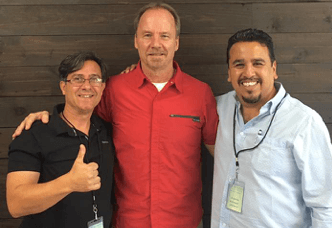A Disciple Making Disciples in Mexico
Despite the influence of the Spanish during Mexico’s colonial era, the geographical isolation of Oaxaca’s individual villages and people groups, over long periods of time, have allowed them to maintain their unique languages and customs, beliefs and rituals – their ancestral traditions and to an extent their autonomy. For this reason, Oaxaca is the most ethnically complex state of Mexico’s 32 states and it is considered by many ethnologists and anthropologists to be the most ethnically complex region in the entire world.
This complexity has left Oaxaca’s villages largely unreached by missionaries for the past two thousand years.
The largest of Oaxaca’s indigenous peoples are the Mixtees. In their own language, they are known as the “people of rain.” Among the Mixtees, there are more than 50 individual people groups, each with its own unique language and traditions.
The religion of the Mixtees is animist, that is, they believe that all things, even animals and plants, natural phenomena, geographic features, and everyday objects, have souls or spirits. Many communities have their own sacred places, like holy mountains or caves where they offer animal sacrifices to appease or ask for blessings from a particular god. They may have a god of the sun, corn, rain, fire, hunting, or even a god of death.
In one village, for instance, the farmer must sacrifice the blood of a chicken to the god of the land before they can plant seeds. So how can Christians reach out to these isolated people groups who have resisted Western influence for centuries? First, it takes someone called by God, who has the courage and the faith to share the good news of Jesus Christ where it has been unwelcome for hundreds of years… a person like Alejandro Rodriguez.
In 1996, God called Alejandro and Shayra Rodriguez to work in an unreached Mixtee village in the southern state of Oaxaca, Mexico. They had been there about 9 months, when a group of villages grabbed Alejandro and started beating him. They put him in their local jail with the intention of hanging him via their indigenous customary law of “usos y costumbres” (customs and habits).
Friends in the community alerted the state police of the situation, and they came to his rescue. The police informed them that they should leave that community and that they would take no further responsibility. Alejandro and Shayra prayed and felt the Lord calling them to stay. They lived there for seven more years, and they were able to plant a church that today is still alive and thriving.
Alejandro is a graduate of Bethany School of Missions in Mexico. He caught a vision to reach the unreached of Mexico while serving on internship in Oaxaca. Upon graduating, he founded SIN FRONTERAS (without borders) Missionary Training Institute and sending agency, molded after what he experienced at Bethany.
Alejandro is a member of the GlobServe network and currently has numerous Mexican and ethnic believers ministering among 20 people groups. Through the ENGAGE500 initiative, he has officially adopted 15 additional unreached groups in Mexico.
This article is from the Fall 2018 Issue of coMission Magazine.



